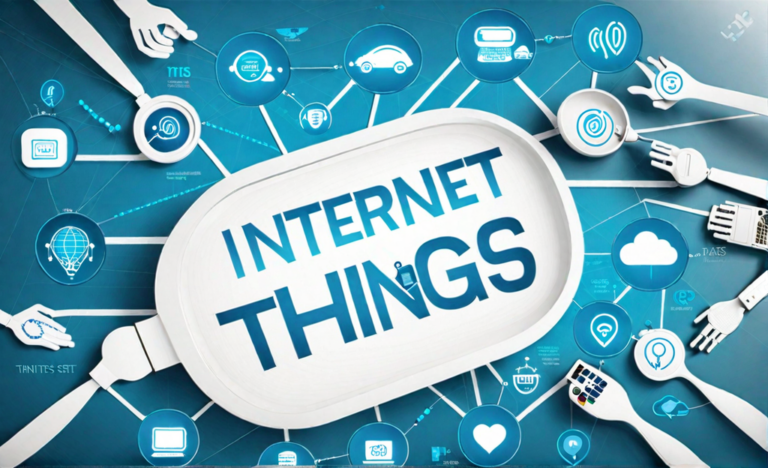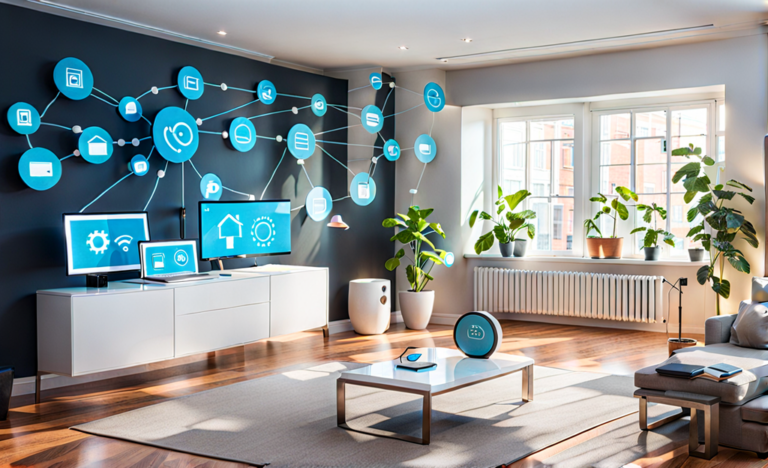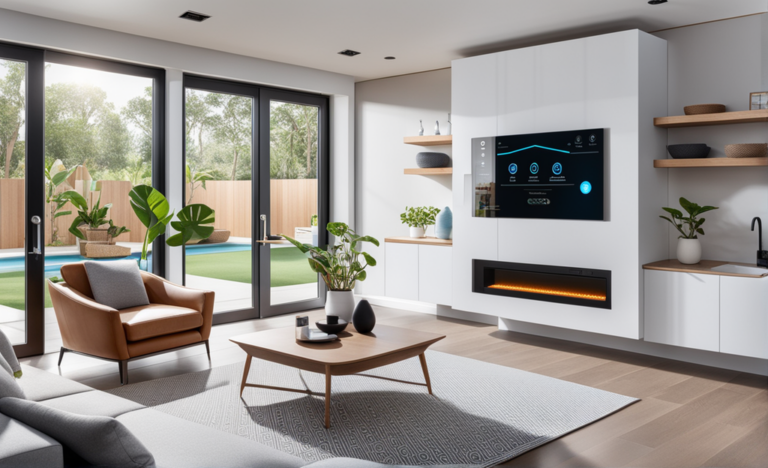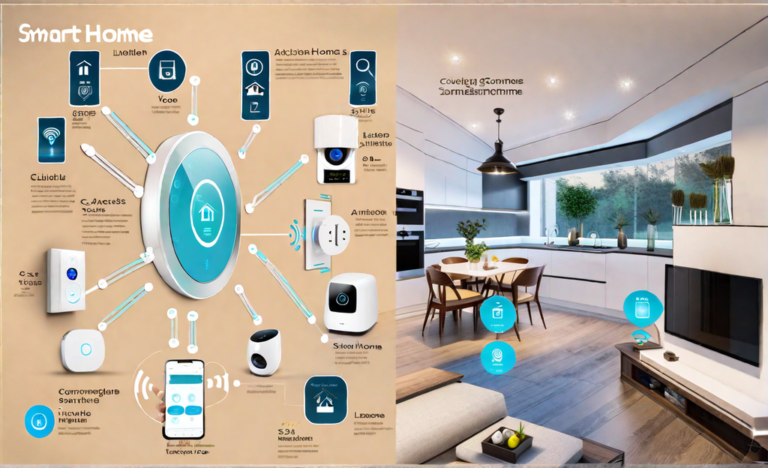Smart Home Technology for Seniors
The Aging Population: A Growing Concern
The world’s population is aging at an unprecedented rate. According to the World Health Organization, the number of people aged 60 and above is expected to double by 2050. This demographic shift presents various challenges, including healthcare, caregiving, and housing. Smart home technology has emerged as a powerful solution to address many of these challenges.
Key Benefits of Smart Home Technology for Seniors
1. Enhanced Safety
Safety is a paramount concern for seniors, particularly those living alone. Smart home technology provides a range of solutions to enhance safety, such as:
- Fall Detection: Wearable devices and sensors can detect falls and automatically alert emergency services or caregivers.
- Smart Locks: Keyless entry and remote locking/unlocking offer a secure and convenient way for seniors to access their homes.
- Security Cameras: Video surveillance systems provide real-time monitoring and deter potential intruders.
2. Health Monitoring
Smart home devices can help seniors monitor their health and receive timely medical attention. Key health-related devices include:
- Wearable Health Trackers: Devices like Fitbit and Apple Watch track vital signs and activity levels.
- Medication Dispensers: Automated dispensers ensure medication adherence and send reminders.
- Smart Thermometers and Blood Pressure Monitors: These devices allow seniors to monitor their health without frequent doctor visits.
3. Independence and Convenience
Smart home technology empowers seniors to live more independently. Examples include:
- Voice Assistants: Devices like Amazon Echo and Google Nest provide voice-activated assistance for various tasks.
- Smart Appliances: Connected appliances are easier to operate and can be controlled remotely.
- Automated Lighting and Climate Control: Smart lighting and thermostat systems enhance comfort and energy efficiency.
4. Social Engagement
Many seniors face social isolation, which can lead to various health issues. Smart technology helps seniors stay connected:
- Video Conferencing: Devices like tablets and smartphones enable seniors to video chat with friends and family.
- Smart Social Assistants: Some devices, like ElliQ, are designed specifically to engage seniors in social interactions.
5. Caregiver Support
Smart home technology is a valuable resource for caregivers who provide support for seniors. Devices like:
- Home Monitoring Systems: Sensors can alert caregivers to unusual activity or emergencies.
- Remote Access and Notifications: Caregivers can monitor and receive alerts about a senior’s well-being and activities.
Notable Devices and Solutions
Numerous devices and solutions cater to the needs of seniors. Some of the most noteworthy include:
1. Medical Alert Systems
Medical alert systems like Life Alert, Lifeline, and Medical Guardian offer wearable devices with emergency buttons. In case of a fall or medical emergency, seniors can request assistance at the press of a button.
2. Voice Assistants
Devices like Amazon Echo and Google Nest provide voice-activated control over various tasks, including setting reminders, controlling smart devices, and even answering questions.
3. Smart Sensors
Smart sensors, like those offered by companies such as BeClose and Notion, monitor movement and detect unusual patterns to provide insights into seniors’ daily routines and safety.
4. Telehealth Solutions
Telehealth platforms like Teladoc and Doctor on Demand enable seniors to consult with healthcare professionals from the comfort of their homes, reducing the need for frequent doctor visits.
5. Smart Shoes and Wearables
Innovations like GPS-enabled smart shoes and wearables can track a senior’s location and provide real-time data to caregivers.
The Future of Smart Home Technology for Seniors
As technology continues to advance, the future of smart home technology for seniors looks promising:
1. Machine Learning and Predictive Analytics
Machine learning can help predict health issues or emergencies based on seniors’ behavior patterns and vital signs, allowing for proactive intervention.
2. Robotic Companions
Advancements in robotics may lead to AI-driven companions that provide social interaction, assistance, and even healthcare monitoring.
3. Remote Caregiving Solutions
The integration of AI and robotics could provide remote caregiving solutions, such as medication administration and health check-ups.
Smart home technology for seniors offers a transformative approach to aging in place, enhancing independence, safety, and wellbeing. As technology continues to evolve, we can look forward to more sophisticated solutions that address the unique needs of our aging population. These innovations have the potential to change the way we care for and support our seniors, ensuring they can live comfortably and safely in their own homes for years to come.






